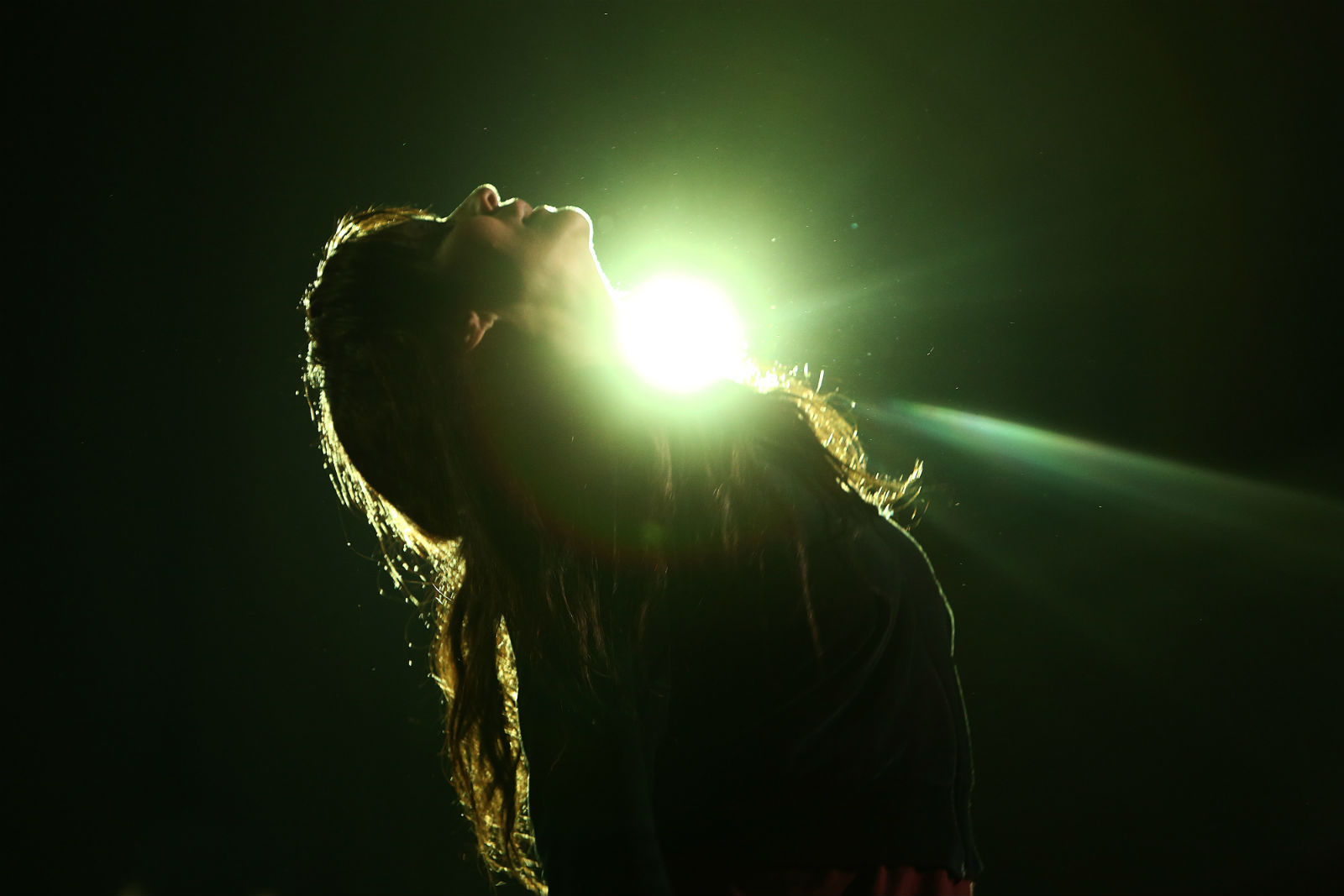Nico, 1988: Portrait of Warhol Muse’s Final Days Suitably, Germanically Grim
By Liam Lacey
Rating: B+
There is one compelling reason to see Nico, 1988, Italian director Susanna Nicchiarelli’s mercurial quick-sketch drama about the last years in the life of the German singer and actress, Nico. That reason is to sink into the performance by Danish actress Trine Dyrholm (The Celebration) who embodies the singer in middle age: a raging, hurtful, unfiltered character, struggling to defend her reputation as a serious artist, not some man’s inspiration, not a shadowy femme fatale, to quote the title of her hit song with The Velvet Underground.
Nico: No one is touching her monkey...
Born Christa Paffgen, Nico is best-known as the Warhol-mentored icy beauty who brought a Weimar world-weariness and off-key drone to the noisy 60s rock-and-pop music and was named as the muse to half the major male artists of the decade (Dylan, Lou Reed, Leonard Cohen, Jackson Brown, Jim Morrison…). Then, through the 70s and 80s, Nico went dark: musically in her proto-Goth sound and visibly, by dying her hair dark and dropping out of the spotlight.
The film catches up with Nico, now calling herself Christa again, in 1986, living in Manchester, England, on the verge of her final European tour with a pickup band of “amateur junkies” as she calls them. The tour is organized by her manager, Richard (John Gordon Sinclair), to promote her final album.
Essentially, the film is a portrait of the artist as a monster. She’s erratic and imperious, throwing out hurt bombs at band members, journalists, audiences, and herself, and then pouring out her angst in her performances. Dyrholm does an impeccable job of capturing the sorrowful drone of Nico’s voice, though she’s a better singer.
There’s a grim humour to all of this. Nico’s statements, gleaned from interviews over the years, sound like a parody of German nihilism. For example, when she tells an interviewer she uses her portable tape recorder to search for “the sound of defeat.” Or, when she drops a line worthy of Madeline Kahn’s Lili Von Shtupp, from Mel Brooks’ Blazing Saddles: “I’ve been at the top and I’ve been at the bottom. Both are empty.”
Yet, Nicchiarelli’s film makes a case that Nico’s instability and bleakness was no pose. There are flickering flashbacks to the delirium of her 60s heyday (including some footage from filmmaker Jonas Mekas) but far sharper in her memory is a scene as a child, watching Berlin burn under Allied bombs, leaving what Nico called “desert of bricks” as the landscape of her mind.
Near the film’s end, Nico goes on a methadone program and moves to Ibiza with her son, Ari — a step toward taking charge of her life. Her death at 49 — 30 years ago this summer — came from a mild heart attack, followed by a tumble from a bicycle and head injury; a misfortune, not the predictable end to a femme fatale.
Nico, 1988. Directed and written by Susanna Nicchiarelli. Starring Trine Dyrholm and John Gordon Sinclair. Now showing at Toronto’s TIFF Bell Lightbox, Toronto, Calgary’s Globe City, and Vancity, Vancouver.

